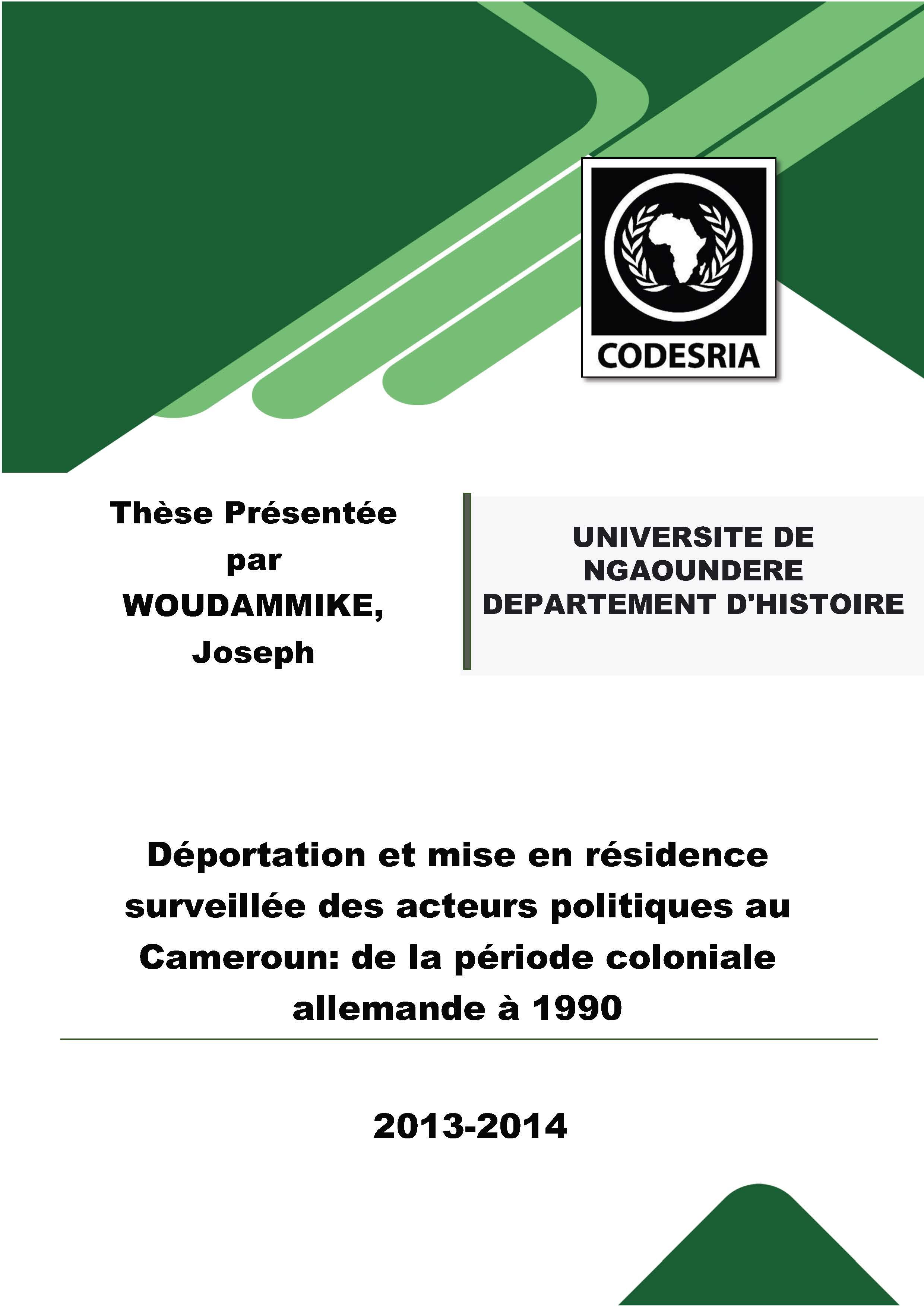Déportation et mise en résidence surveillée des acteurs politiques au Cameroun: de la période coloniale allemande à 1990
Keywords:
Deportation, House Survey, Political Figures, prison, Political Prisoner, Colonization, CRC, CameroonSynopsis
Essentially handled from a political history end, this thesis analyzes tlie System of House arrest and déportation of political figures in Cameroon in their multiple facets. It examines how the political figures were identified, how they were forcefully kept at home and surveyed as well as how they were deported, and their survival stratégies in their intemment camps. It goes further to handle the merciless treatment and amnesties some of them received. A broad spectrum of oral testimonies, colonial archives and some documents of the intelligence services and repression show that this practice in its modem form was introduced in Cameroon by the German colonial authorities (1884-1915). Consequently, it became a frightening weapon of the colonizers in the banishment of the Cameroonian political leaders who opposed in particular the conquest and/orthe abusive exploitation of their territory. Following the loss of German sovereignty over Cameroon following the Franco-British onslaught during the First World War, they (Britain and France) as new masters of the old Protectorate through the Mandate responsibilities assigned to them by the League of Nations made this practice an eminently effective weapon to reduce or to silence their adversaries thereby, destroying any feeling or action that could contest their authority over them. Thus, the Cameroonian nationalists incidentally became targets of a législative and police survey and this was particularly aimed at dismantling and fimstrating any concerted actions of the executives of UPC before there became mature. After the departure of the colonizers, the new leaders of Independent Cameroon went beyond the brackets of simple déportation by affecting a high coefficient of profitability by banishing of the political adversaries out riglitly. To legitimize the phenomenon of purging opponents, the leaders resorted to the exceptional measures which enabled them to legislate by way of ordinance. It is within this framework that the ordinance against subversion was promulgated. The immédiate conséquences of this law were the arbitrary arrests, the déportations, the création of the dispensaries of torture (DIRUOC, SEDOC, NDT, CENER, BMM) and the construction of concentration camps for the intemment and the suffocation of the rebellious spirits. This study puts forward the prétentions character of the concept of déportation adopted by the govemment of Cameroon since independence. Concretely, the administration adopted soft euphemisms to mask a complex practical policy. In other words, the study shows that from 1884 to 1990, much of the Cameroonians made the pilgrimage in the tropical goulags because of their political ideas. It then appears, beyond the recourse to a specious vocabulary, that the succession of the administrations (German, Franco-English and Cameroonians) tmly did not change anything with the quasi systematization of the déportation like political weapon.
Downloads
References
ACRCT, Non classées, Notes trimestrielles des Assignés à résidence surveillée et obligatoire du Centre de Rééducation civique de Tcholliré, département de la Bénoué, quatrième trimestre 1966.
ACRCT, Non classées, Note no 000432/PR/CRC/fC.-, à l'attention de Monsieur le Directeur Général du Centre National de Documentation.
ACRCT, Non classées, Arrêté no 67/CAB/PR portant création d'une Brigade Régionale de Police Judiciaire à Garoua, 1er juin 1964.






